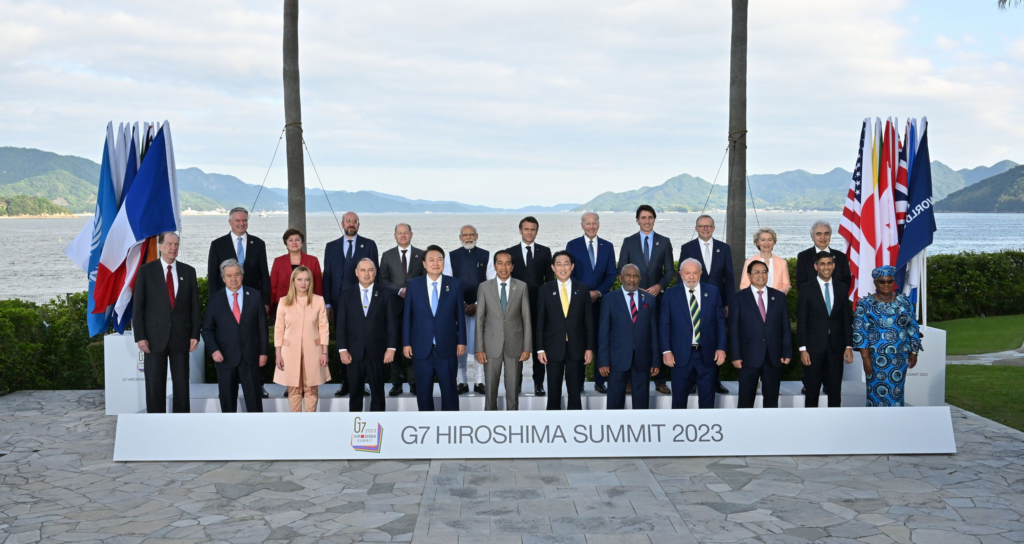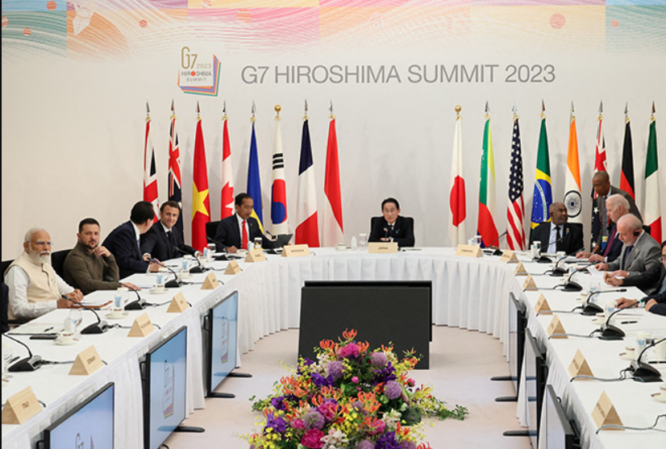Major events are influencing the 21st century. The Ukraine issue, which dominated the G7 conference in Hiroshima, may appear less important to someone in a different country. Most see this as a neighborhood dispute Europe must resolve. It does not control worries or relationships.
The European crisis affects India, Africa, and Latin America. Nation-building is their first priority. They’re not interested since they have to deal with war’s collateral damage.
Geography matters. East-West and North-South binaries are intriguing, but proximity and neighborhood matter more. Hyper-globalization has made us more local.
Social media, technology, politics, and other forces have pigeonholed us. India appreciates Europe’s struggles, but the 2020s began with Chinese assault, the Wuhan virus, and Kabul’s capitulation.

Social media, technology, politics, and other forces have pigeonholed us.
Second, the UN voted against the Ukraine war. Few of the 140 nations who voted and denounced Russia sanctioned Russia. The list of nations that received pandemic vaccines first may be useful. It may reveal Russia’s sanctioned nations. It will teach you about globalization, hierarchy, and unhappiness. World War II and globalization winners punish Russia today. Challenges to the status quo are legal.
India is frequently thoughtlessly described as undecided. India is not hesitating. Like other nations, it will prioritize. Value-based frameworks are unsustainable as European leaders visit China.
Self-interest and the necessity for profitable commercial partnerships drive nations. Same in India. Trade continues where the economy needs it while facing the Chinese in the Himalayas. Interest trumps distance.
The pandemic, the Doha Agreement’s repercussions and Afghanistan’s abandonment, Chinese assault on India’s frontiers, and new sanction regimes’ effects on the “Global South” form the third lesson. Medical equipment and vaccinations were stolen during the COVID-19 pandemic, leaving treatment gaps.
Self-interest and the necessity for profitable commercial partnerships drive nations.
No superpower, great power, or huge power existed throughout the epidemic. Only self-interest existed. Because it was convenient for higher authorities to depart, the Afghan people were deceived and abandoned. Chinese territorial advances have prompted a variety of self-serving responses from democracy defenders.
Simply said, there is no morality. Only vicious national self-interest survives. Two performers exemplified this technique in the 1960s and 1970s, one in the 1980s and 1990s, and numerous fresh voices in the current century.
Nations must correct their self-perceptions to have a meaningful international conversation. In this perspective, framing the Global South as a viable bridge actor between contending viewpoints has appeal.
However, the phrase “Global South” hides the group’s heterogeneity. Few nations want to be called “southern” as they emerge and impact global systems. Brazil and India may resent this title in five years.
The tidy concept of the Global South ignores the fact that internal changes will soon outweigh external ones. Over the next decade, how the South organizes will have a greater influence on the global balance of power and the new international order than the West. A Global North-South East and West will develop this century.
LLPs will shape politics, and governments will collaborate on specific concerns, goals, and outcomes.
Future foreign engagements will operate as limited liability partnerships (LLPs), like law firms. LLPs will shape politics, and governments will collaborate on specific concerns, goals, and outcomes.
With the new LLP geopolitical ethos, we can focus on the narrowly defined joint interest at hand and develop strategic, if transactional, connections. Realistic and rough. Though we don’t like it, it’s here to stay.

